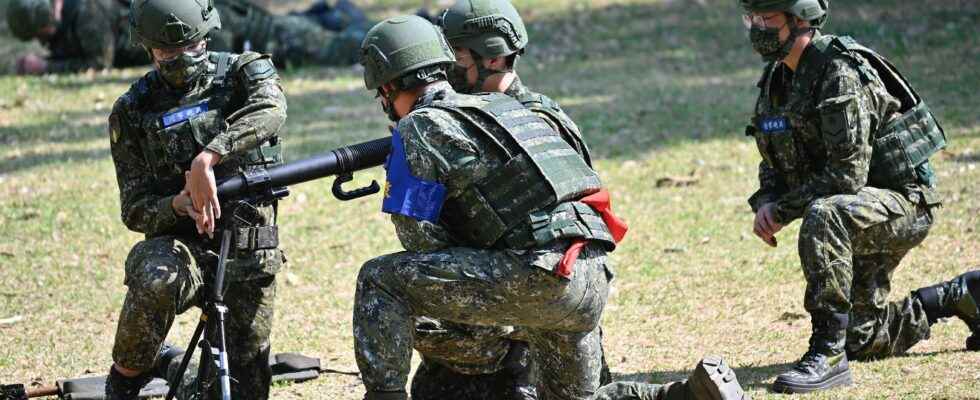“For the past few months, the hypothesis of a simultaneous conflict in Ukraine and Taiwan has not been ruled out, confides to L’Express, François Godement, adviser on Asia at the Institut Montaigne and author of Xi Jinping’s words (Dalloz, 2021). But an invasion is being prepared in advance and so far the Chinese maneuvers do not seem sufficiently intrusive.” Collected by the Center for Strategic and International Studies (CSIS) This Monday, January 9, military experts conducted a war simulation and tested 24 different scenarios, each featuring attempts by China to seize the Taiwanese island by force by 2026.
And the specialists came to “two conclusions,” said Eric Heginbotham, a security expert at the Massachusetts Institute of Technology (MIT). On the one hand, China “has very little chance of succeeding and achieving its operational objectives, or of occupying Taipei”, the capital of Taiwan. On the other hand, “the cost of the war would be high for all those involved, and certainly for the United States” for whom the degree of involvement would be decisive. In their models, the military always imagine the same initial scenario: a first powerful bombardment destroys most of the Taiwanese navy and the air force in the first hours of hostilities. The Chinese navy encircles Taiwan blocking the arrival of ships or planes.
According to the scenario qualified as most probable by the experts, the Taiwanese army would force the invaders to be bogged down along the coast. Matthew Cancian of the Naval War College, a US Navy research institute, told AFP that crucial variables could influence the degree of success of an invasion such as Taiwan’s degree of determination to repel an invasion, but also the authorization given or not by Japan to the United States to launch responses from their bases located on Japanese territory. “Without American aid and support, Taipei does not have the means to deal with an invasion by Beijing on its territory”, estimates the specialist François Godement who nevertheless wishes to qualify certain points of this recent American publication.
“Dissuade China”
This is indeed the first time that the United States has revealed so much information about Taiwan. For the China specialist, there is undoubtedly a strategy behind this publication: “By making this data public, the United States hopes to dissuade China from invading Taiwan but also to reassure the targeted public”. The “list of recommendations” effect with regard to the Taiwanese authorities and the Americans themselves is also flagrant. At the start of the 165-page report, the CSIS advocates four conditions for Taiwan’s success: the strengthening of Taiwan’s ground forces, close collaboration between Washington and Taipei in terms of military equipment and materiel, the deepening of diplomatic relations with Japan and finally the increase in the arsenal of long-range anti-ship cruise missiles to be able to strike the Chinese fleet quickly and massively from the outside.
Everything therefore suggests that the United States, busy supporting Ukraine against the Russian invasion, feels threatened by China. “The capacity for damage that China can inflict on Taiwan is gigantic given its resources, comments François Godement. But the scenarios are not limited to a diagram of invasion of Taiwan for the sinologist. plausible according to him, is moreover that of a “hybrid war or of Chinese constraints on Taiwan – a blockade for example – challenging the United States to trigger a conflict in response to this harassment”. (drones, cruise missiles, etc.) could then prove to be crucial: “Taiwan is quite well equipped in this area, even if the United States says it wants to redirect its armament budget towards more sophisticated devices.”
Finally, the economic consequences that such a conflict would have in Europe should not be underestimated either. They could even be “considerable” according to a study published in mid-September by the Rhodium Group, a research organization. “Anyway, History has shown us that it was not by force that we succeeded in subjugating one people to another, notes François Godement. We have never conquered a country by bombing .”
